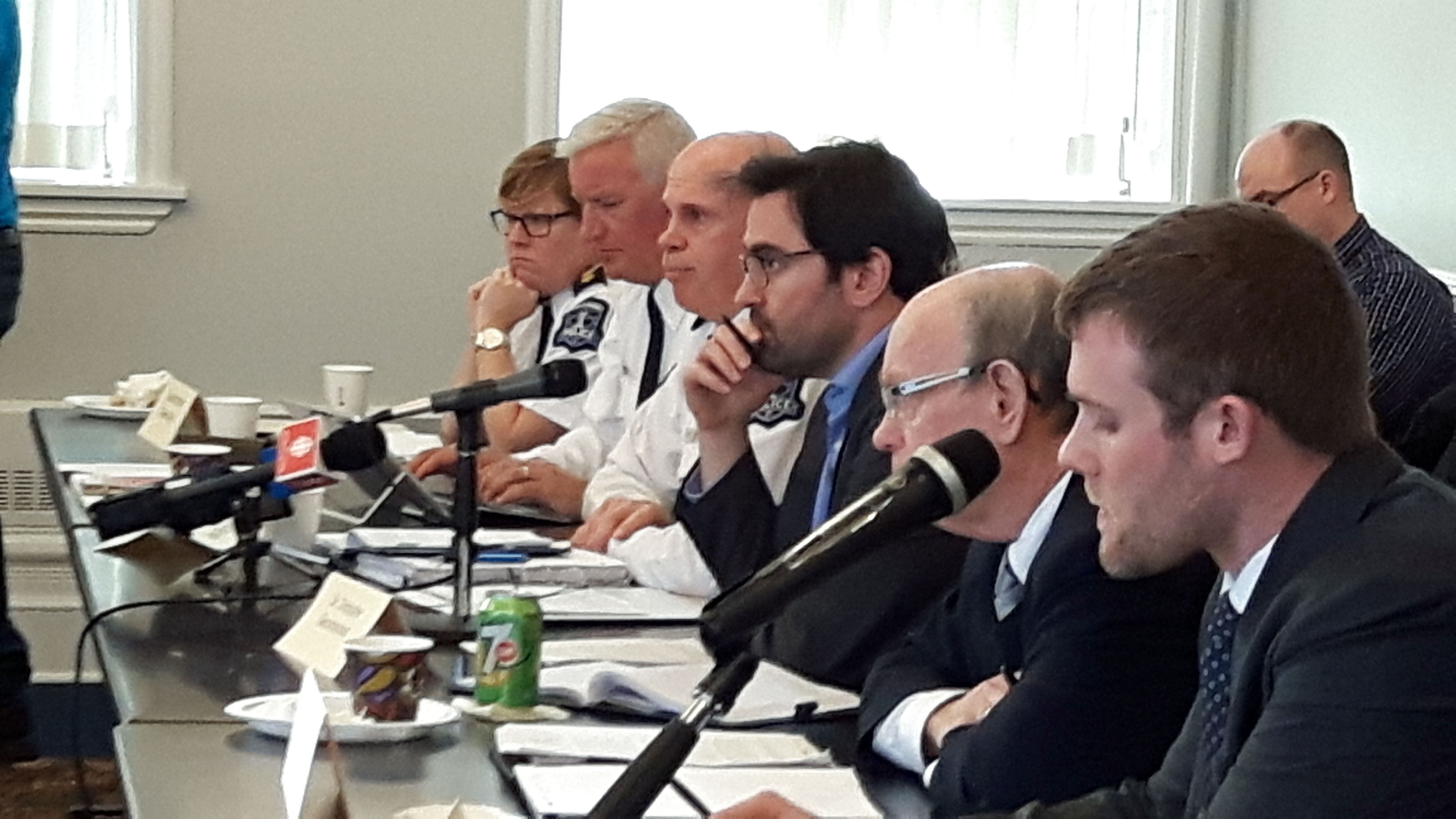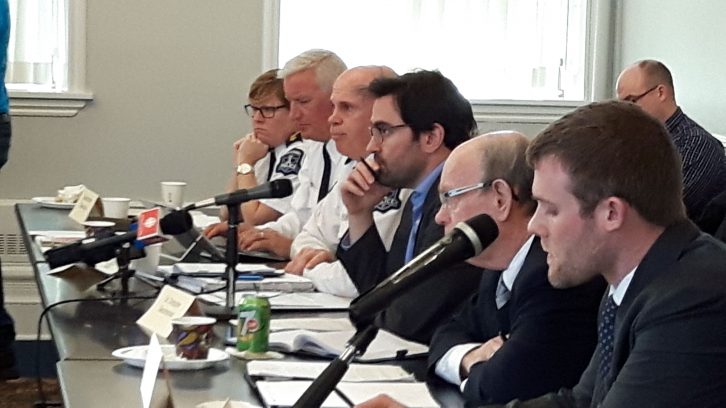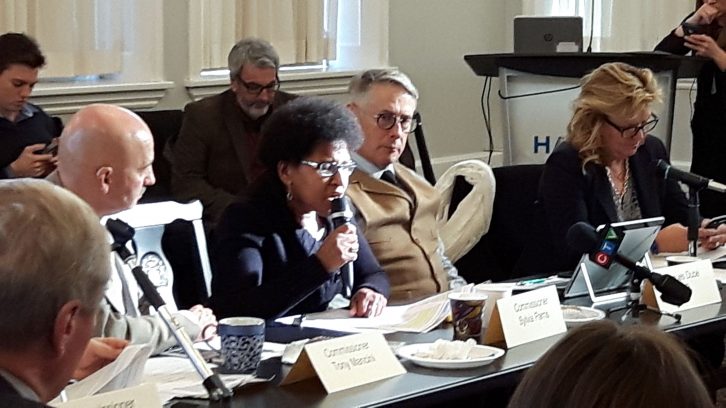News
HRP commissioners debate ending ‘street checks’ in Halifax
Black residents are more likely to be stopped by police in HRM

caption

caption
Christopher Giacomantonio presents his findings to the boardHalifax’s deputy police chief says he was surprised by internal data suggesting black Haligonians are three times more likely to be stopped by police than their non-black counterparts.
“We know there has been a lot of discussion around disproportionality across the country but … when the numbers came in, quite frankly, I didn’t think they would come in like that,” said Deputy Chief Bill Moore after a Halifax Board of Police Commissioners meeting on Tuesday.
The data, which is from 2005 to 2016, is based on information that police gathered at street checks.
Street checks are interactions officers have with individuals who they notice doing something or might be able to provide information. It can just be a conversation or it could lead to acquiring information to help with a case.
Data about the individuals is collected, and this data is what was analyzed by police research coordinator Christopher Giacomantonio.
He found that while black residents only make up 3.6 per cent of the total population in the Halifax Regional Municipality, around 11 per cent of the people stopped by police were black.
Giacomantonio stresses that these findings are preliminary, but maintains “the main finding that you can take out of this document is that there is a disproportionality that cant be explained by other explanations.”
“There is some … effect of ethnicity on when people get checked,” he said
Once the information had been presented, the Board of Commissioners raised questions about racial profiling within the HRM.
During question period, Commissioner Sylvia Parris, the only African-Nova Scotian sitting on the board during the meeting, suggested ending street check practices all together.
“(This should be done) until we feel we have a good handle on the value they contribute and that we feel like we’re assured that it is not race based,” she said.

caption
Sylvia Parris responding to Giacomantonio’s findingsMoore doesn’t think ending the street check practice is the right move because he wants to have more conclusive data before he makes his decision.
“We want to understand what is going on,” he said to the press after the meeting. “We want to understand whether it is something either by policy or by the way our officers are actually going about their work.”
Fellow commissioner and Deputy Mayor Steve Craig also doesn’t think ending the stop and check procedure is necessary.
“If we stop everything, what do we miss?” he asked. “And what are we not proactive in preventing?”

